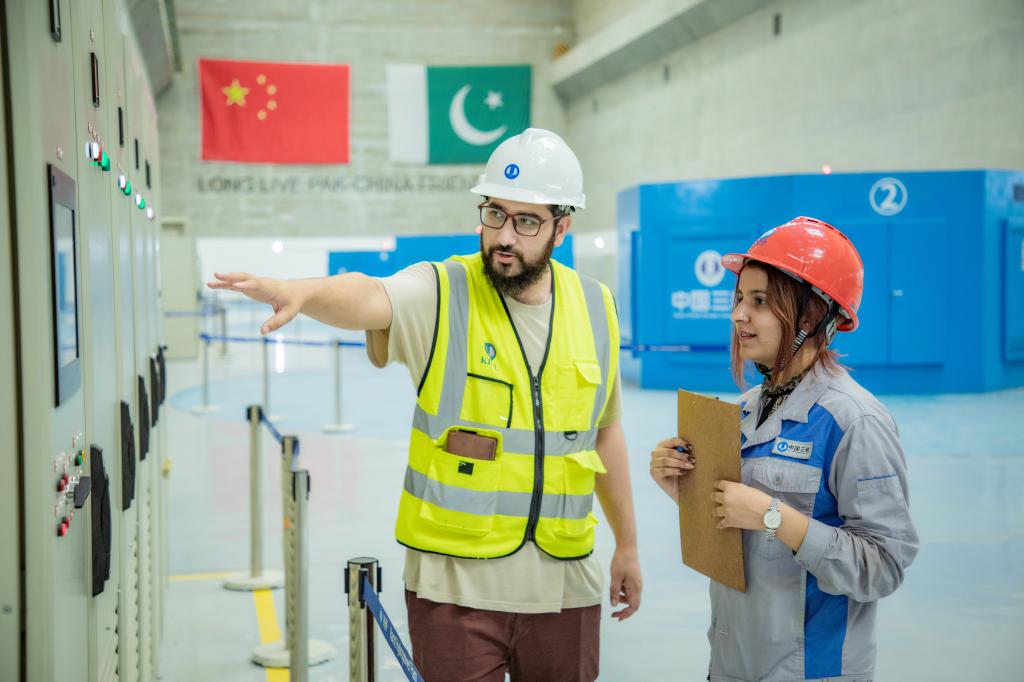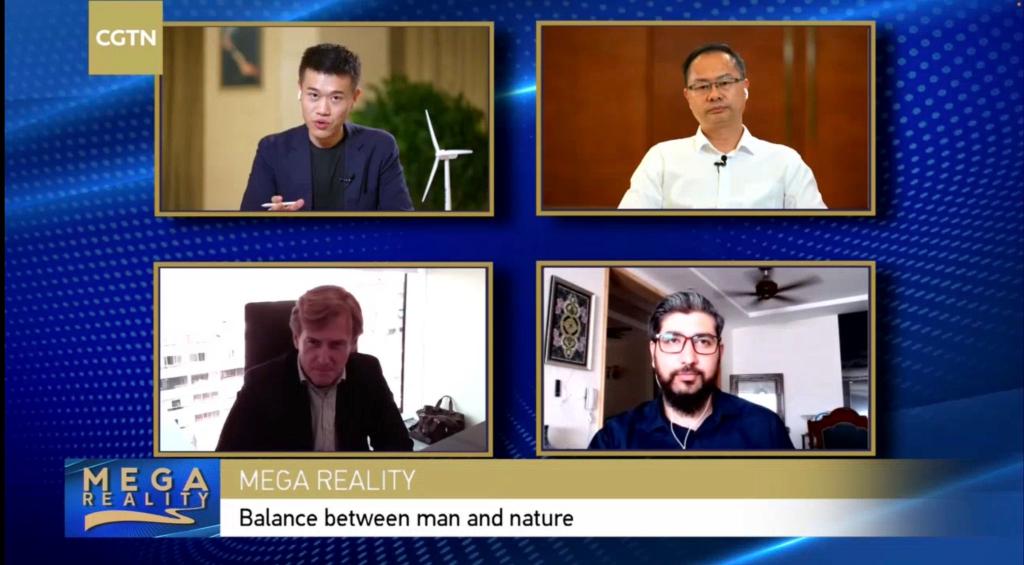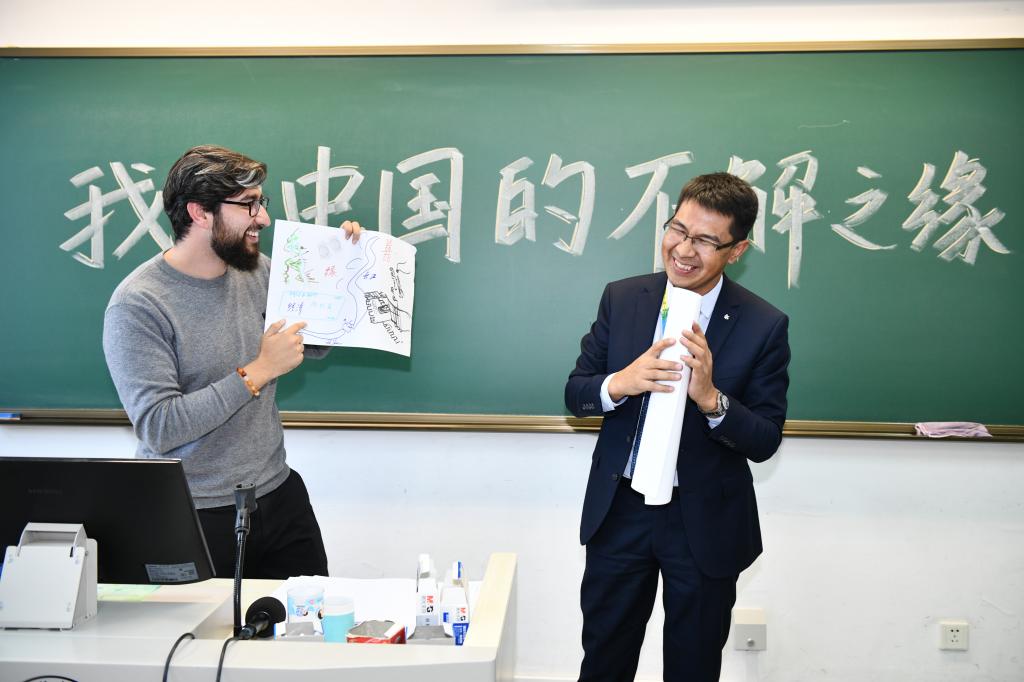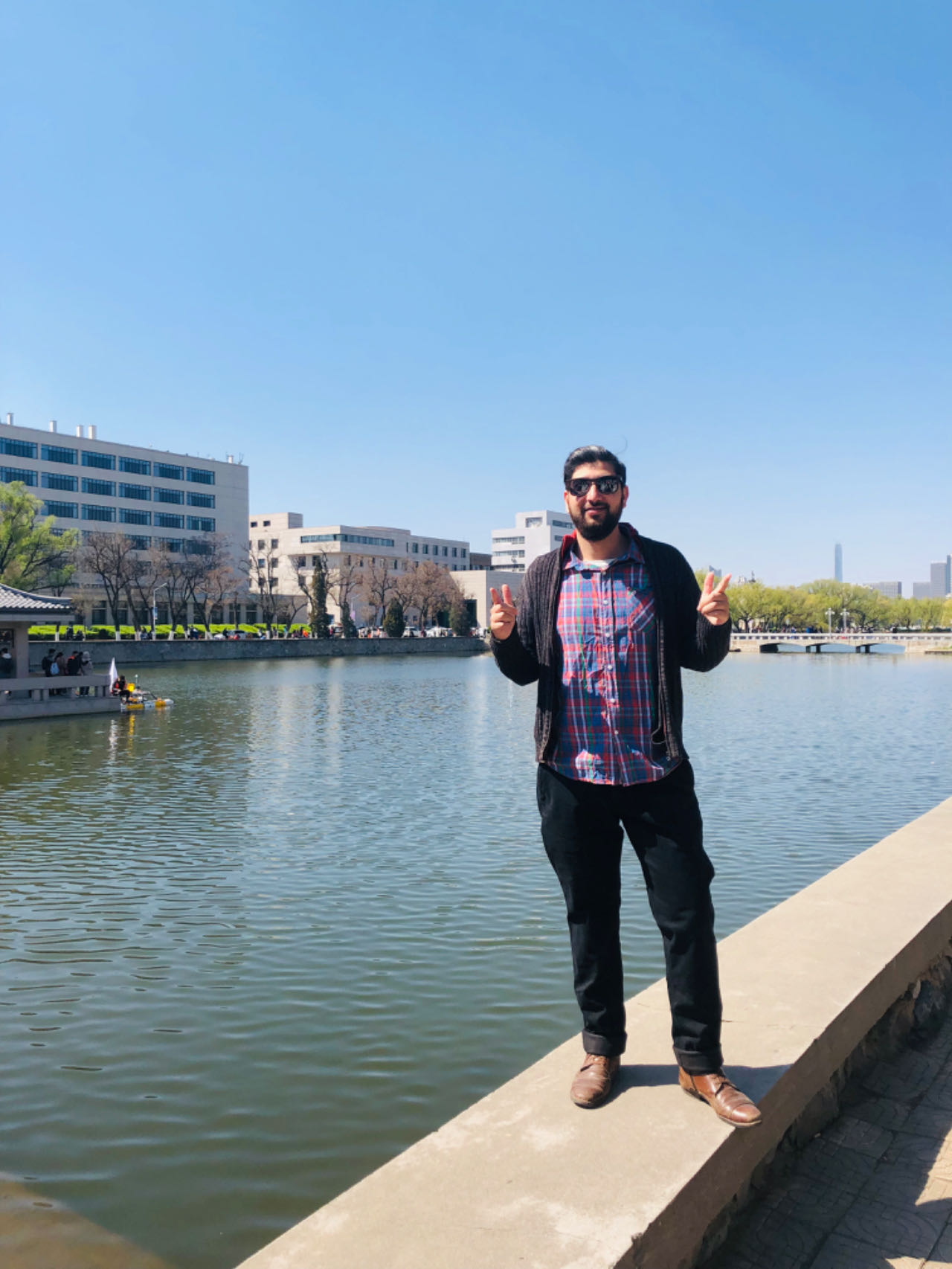On October 17, 2023, the third Belt and Road Forum for International Cooperation was held in Beijing. Hearing the news, Moaaz Awan, a PhD student at Tianjin University who hails from Pakistan was very excited, “The forum will definitely promote the high-quality development of the Belt and Road Initiative (BRI).”
Moaaz Awan featured in the Pakistan episode of The Call of the Silk Road, a TV documentary filmed by China Global Television Network (CGTN) and shared stories about his active involvement in the construction and development of the China-Pakistan Economic Corridor (CPEC) while serving as the Senior Public Relations Manager at the Karot Hydropower Plant. In the documentary, he said, "Pakistan benefits with the abundant 720 MWs of clean and green energy, making the vision of BRI a tangible reality. A sense of happiness and satisfaction engulfs me.”

Moaaz Awan works at the Karot Hydropower Plant.
Moaaz’s family has a longstanding connection with China. Both his grandfather and his father have studied and worked in China. "When I was young, I lived in China with my father for a while, so I have strong feelings for China." After graduating from high school, Awan chose to study in China.
During this period, a significant event happened and somehow navigated his life course.
“It’s a vivid memory till this day how Chinese President Xi Jinping first proposed the concept of the Silk Road Economic Belt during his speech at Nazarbayev University in Kazakhstan in 2013 and called on world youth to join hands in building a community with a shared future for mankind. I was immediately attracted to this concept and made up my mind to participate in this cause."
After completing his undergraduate studies, Awan pursued his master's and doctoral degrees at the School of Civil Engineering at Tianjin University, focusing on the sustainable development of infrastructures in countries along the Belt and Road Initiative. "As a staunch supporter of the BRI, I have focused my research on the construction of the China-Pakistan Economic Corridor."

Moaaz Awan on CGTN's MEGA REALITY show as a guest speaker
Moaaz Awan has been interviewed multiple times by Xinhua News Agency, CGTN, and other media outlets, sharing his views on the China-Pakistan Economic Corridor. When asked about the impact of the corridor on Pakistan, Moaaz said, "The infrastructure projects of CPEC have improved Pakistan's transportation system. The construction of the Karot Hydropower Plant alleviated Pakistan's power shortage, which has had a profound impact on Pakistan's economic landscape."
While serving as the Senior Public Relations Manager for the Karot Hydropower Plant, Moaaz and his team were mainly responsible for implementing corporate social responsibility projects in the surrounding areas. “We helped build schools, hospitals, parks, introduced clean water systems for drinking purposes, provided vocational training for residents, and repaired roads to improve transportation.Those are all tangible achievements of the China-Pakistan Cooperation. In a word, we all benefit from BRI.”

Moaaz Awan introduces his story with China in an international student get-together
He also put a great amount of effort into telling Chinese stories to the world. As an international student, he has used various domestic and international media platforms to interpret and tell the stories of the Chinese Communist Party and China's development from the unique perspective of a foreign student. He once participated as a distinguished foreign youth representative in CGTN's opinion-based talk show "The Point with Liu Xin" where he discussed the trade relationship between China and Pakistan. During the 20th National Congress of the Communist Party of China, he co-authored a front-page article in Pakistan's national newspaper, The Nation, titled "The 20th National Congress Resonates Across the Himalayas".
“My life experience in China enables me to fully understand the significance the meeting holds for not only Chinese society, but also its neighbouring countries and even the rest of the world. I tried to let more people, especially people from my country see this through this article.”

Awan on campus
Now, the Karot Hydropower Plant has been officially completed and put into operation. Upon returning to Tianjin University to continue his studies, Moaaz Awan expressed his intention to further delve into researching how the China-Pakistan Economic Corridor, as a systematic project, can play a long-term role in the development of Pakistan and the western region of China.
“China-Pakistan Economic Corridor is a comprehensive development system that involves in-depth cooperation in various fields such as infrastructure construction, economic cooperation, trade, and personnel exchanges. Through in-depth research and exploration, I hope to provide valuable insights and suggestions for the sustainable development of the China-Pakistan Economic Corridor, thus laying a solid foundation for long-term cooperation between the two countries.”
By Eva Yin






